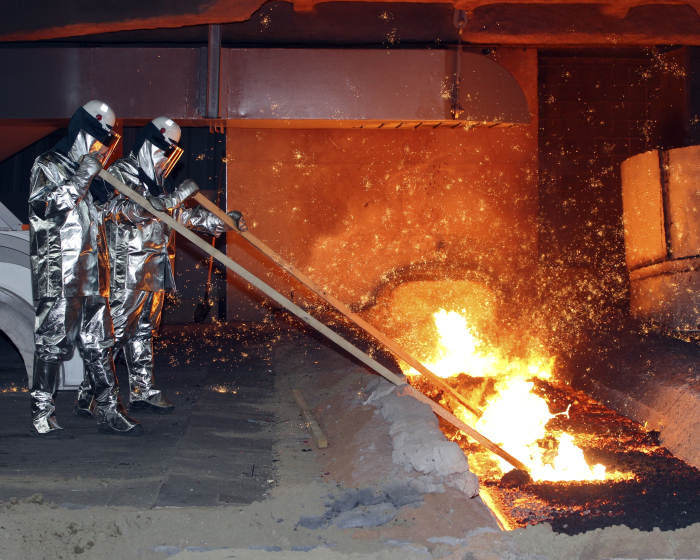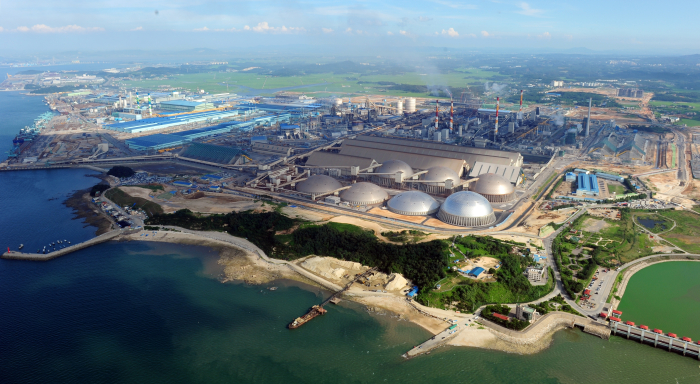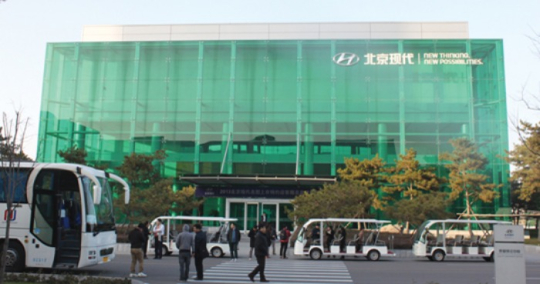Steel
Hyundai Steel further scales back on Chinese operations
The company's three other Chinese units have accumulated losses
By Aug 16, 2023 (Gmt+09:00)
2
Min read
Most Read
LG Chem to sell water filter business to Glenwood PE for $692 million


KT&G eyes overseas M&A after rejecting activist fund's offer


Kyobo Life poised to buy Japan’s SBI Group-owned savings bank


StockX in merger talks with Naver’s online reseller Kream


Meritz backs half of ex-manager’s $210 mn hedge fund



South Korea’s Hyundai Steel Co. has sold its subsidiary in Chongqing, China to further scale back Chinese operations as it loses ground to low-cost local rivals, amid declining sales by Hyundai Motor Co. and Kia Corp. in the neighboring country.
The steelmaking arm of the Hyundai Motor Group has signed a memorandum of understanding to sell the Chinese subsidiary to an unidentified local company, according to sources familiar with the matter on Tuesday.
The deal followed the sale of Hyundai Steel’s Beijing arm in the first quarter of this year.
Each of the Beijing and Chongqing units have a book value of 82 billion won ($61 million).
The latest deal may accelerate the steelmaker’s withdrawal from China, where its three remaining units in Jiangsu, Tianjin and Suzhou have accumulated losses. Industry observers said they could later be put up for sale.

Last year, all its five Chinese subsidiaries, including the one in Beijing, posted losses, including shortfalls of 27.6 billion won at the Tianjin unit, 7.3 billion won at the Jiangsu unit and 573 million won at the Suzhou unit.
The Chongqing unit, established in 2015, processes cold-rolled steel manufactured in South Korea and supplies them to Hyundai and Kia.
Losses at the Chongqing unit snowballed to 15.6 billion won last year, even after it received 10 billion won in fresh capital from its parent company through a rights offering in 2020.
Coupled with the Chinese steelmaker’s growing market share thanks to low-priced products, both Hyundai Motor and Kia have taken a heavy battering from China’s import restrictions on South Korean products in retaliation for the deployment of the Terminal High Altitude Area Defense (THAAD) in South Korea in 2016.

Hyundai Kefico Co., a manufacturer of electronic control systems such as automotive sensors, closed its Chongqing unit last May, eight years after its establishment.
After curtailing its Chinese operations, Hyundai Steel will reduce its reliance on Hyundai Motor and Kia. Instead, it will lift the proportion of shipments to other global carmakers to 20% from 17% in 2022.
“This year, we have secured four global automakers as new customers and are supplying them with our products,” said a Hyundai Steel official. “We’ll focus on increasing the share of external customers in our sales.”
Write to Hyung-Kyu Kim at khk@hankyung.com
Yeonhee Kim edited this article.
More to Read
-
 EarningsHyundai Steel extends profit streak in Q2 on brisk auto steel sales
EarningsHyundai Steel extends profit streak in Q2 on brisk auto steel salesJul 26, 2023 (Gmt+09:00)
3 Min read -
 Carbon neutralityHyundai Steel unveils carbon neutrality roadmap
Carbon neutralityHyundai Steel unveils carbon neutrality roadmapApr 26, 2023 (Gmt+09:00)
1 Min read -

Comment 0
LOG IN


